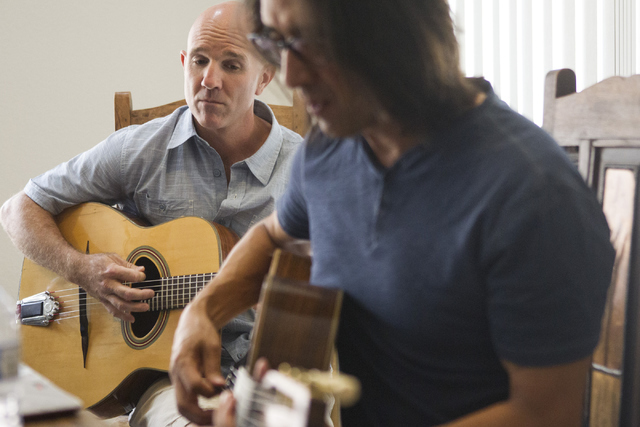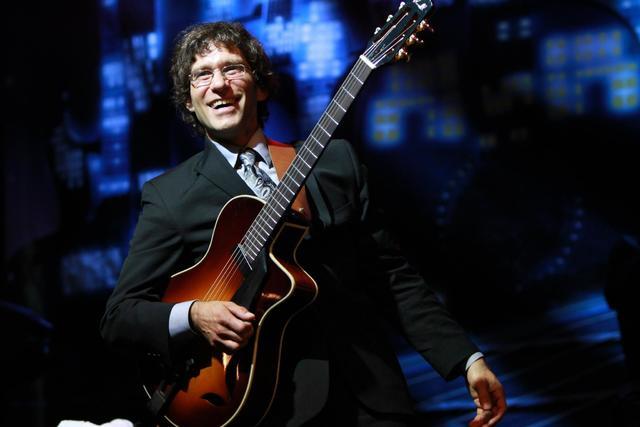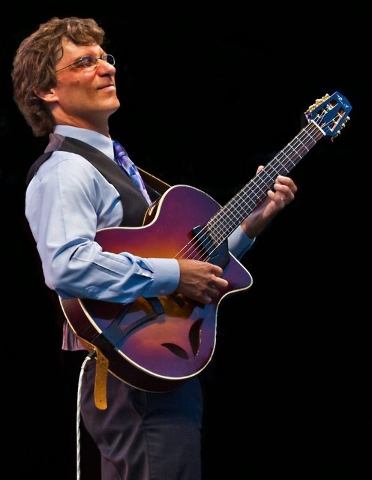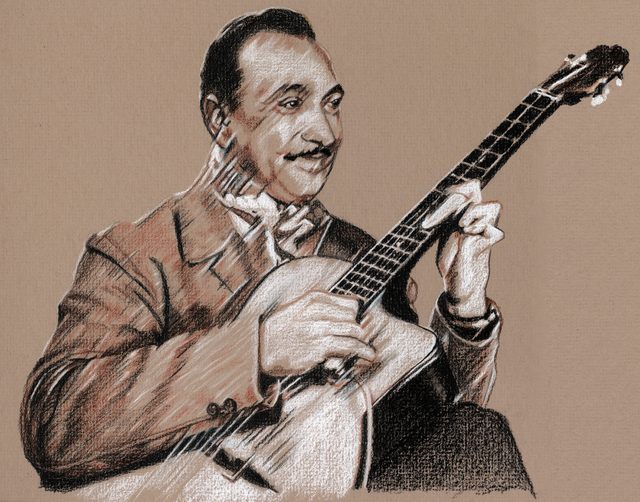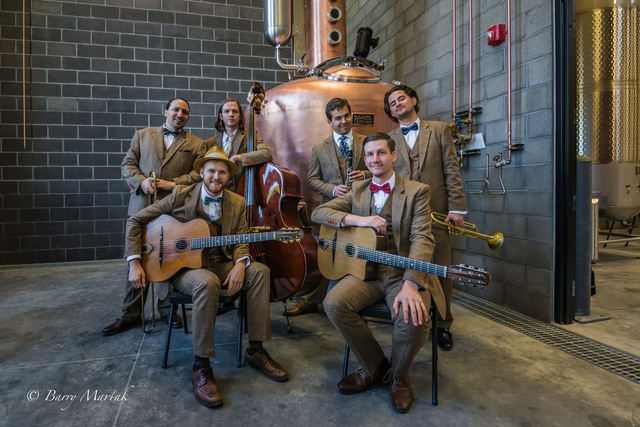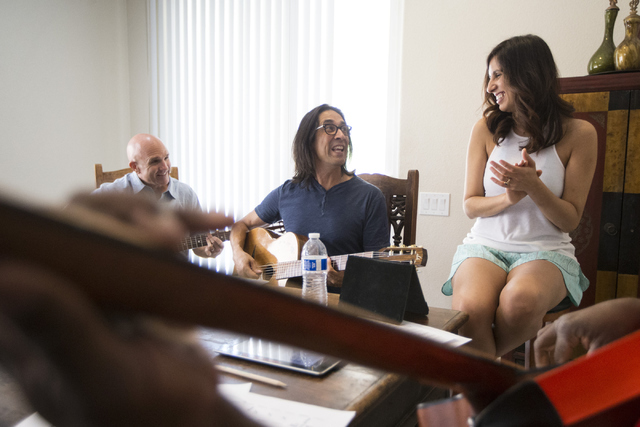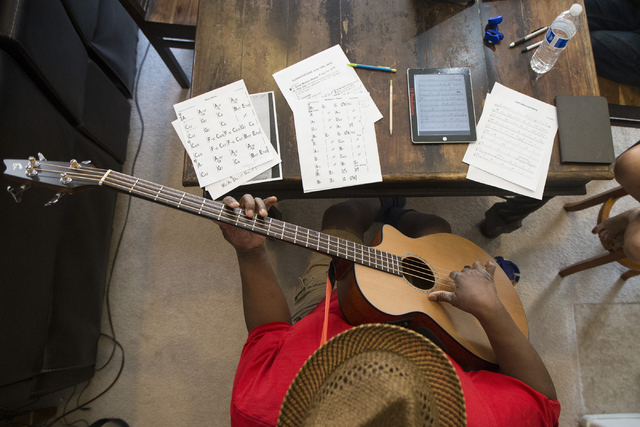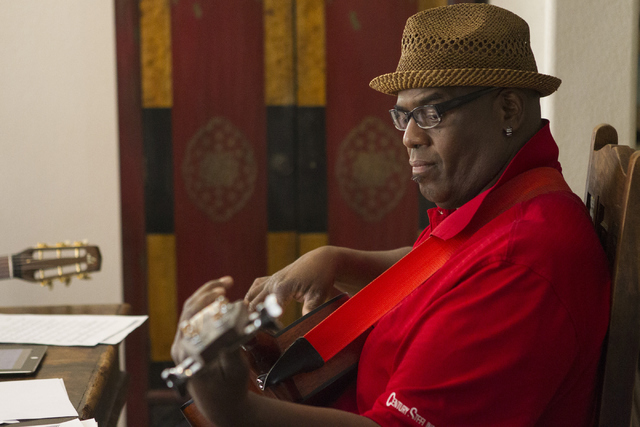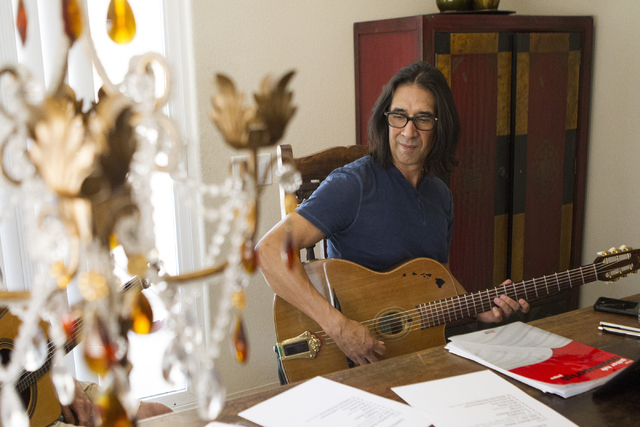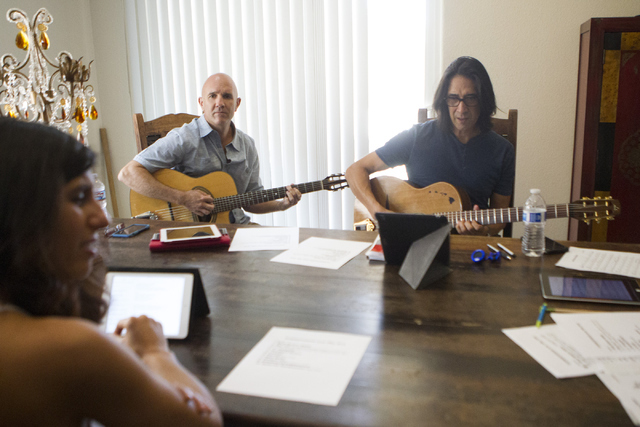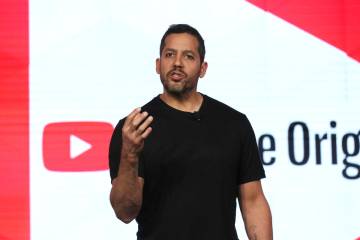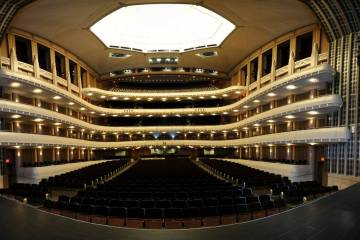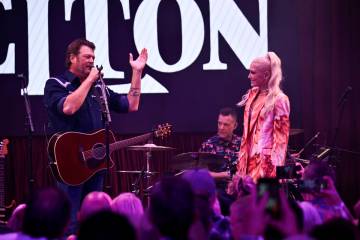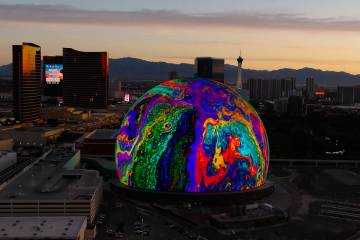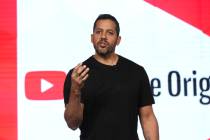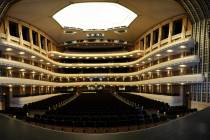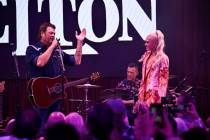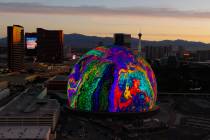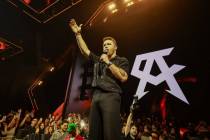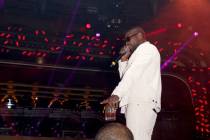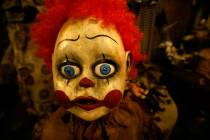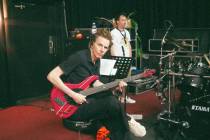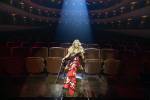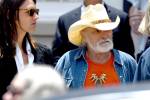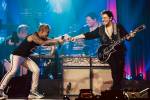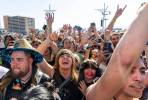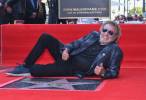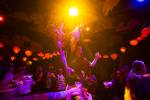Historic Fifth Street School hosting gypsy jazz concert
If the only Django you know is “Django Unchained’s” title character, introductions obviously are in order.
And they’re as close as Saturday’s “DjangoVegas!” gypsy jazz concert at downtown’s Historic Fifth Street School.
Now in its fifth year, “DjangoVegas!” spotlights the beguiling, infectious style of jazz pioneered by the original guitar star, Django Reinhardt, whose collaboration with violinist Stephane Grappelli in 1930s Paris spawned a musical genre that’s still flourishing more than six decades after his death.
Thanks to the internet, gypsy jazz is more international than ever — as reflected by the “DjangoVegas!” lineup.
Along with its namesake guitarist (born in Long Island), the Frank Vignola Trio features Swedish guitarist Andreas Oberg — “he’s like a Swedish tennis star,” Vignola says — and bassist Gary Mazzaroppi, who’s “played with everyone,” including guitar legend Les Paul.
Vignola’s also “played with everyone” — from Ringo Starr to Madonna to the Boston Pops to Paul, with whom he appeared in Las Vegas more than a decade ago.
Also on the “DjangoVegas!” bill: the Rhythm Future Quartet (named after a Django Reinhardt tune), led by Boston-based violinist Jason Anick and guitarist Olli Soikkeli, aka “the Finnish boy wonder,” who’s now based in New York.
Hot House West — who’ll provide the 5 p.m. pre-concert entertainment at “DjangoVegas!” — may be based in Salt Lake City, but the group’s new guitarist hails from Alaska.
And, in its fifth consecutive “DjangoVegas!” appearance, the Hot Club of Las Vegas (named for Reinhardt’s original group, the Hot Club of France) spotlights local showroom performers originally from Hawaii, Cuba and points in between.
That geographical range reflects the trans-Atlantic origins of gypsy jazz, which began with Reinhardt and Grappelli fusing acoustic guitar and violin, respectively, “with the music coming out of New Orleans, Louis Armstrong and early swing,” explains RFQ’s Anick, who also teaches at Boston’s Berklee College of Music.
Gypsy jazz has elements of flamenco and other European musical forms, but “it’s familiar to us Americans — it was (Europeans’) reaction to American swing,” notes Hot Club of Las Vegas founder Mundo Juillerat, who’s such a Django Reinhardt fan that he named his dog after his guitar hero.
Juillerat had never heard of Django until he was hanging out with another guitar hero: British rocker Jeff Beck, who had a pile of more than two dozen CDs in his hotel room.
A few were by blues legends Muddy Waters and Howlin’ Wolf, “but the most were Django CDs,” Juillerat recalls, noting how Beck told him, “ ‘Oh, Django’s my fave.’ I made a note to myself: Check out Django Reinhardt.”
After listening to Reinhardt’s recordings, playing his tunes — and some Django-inspired festivals — Juillerat started Hot Club of Vegas.
He and Brian Kendall, cultural supervisor at the Historic Fifth Street School, came up with the idea for “DjangoVegas!” after Kendall heard the Hot Club of Las Vegas during a First Friday performance.
But gypsy jazz had been on Kendall’s radar even before the 2012 debut of “DjangoVegas!”
At various arts conferences, “I kept hearing ‘gypsy jazz’ — the phrase and the music,” Kendall says. And when he heard Argentinian guitarist Gonzalo Bergara at an Oregon conference, Kendall’s reaction was a resounding “Whoa — this is some cool stuff, and different” than traditional jazz.
This year’s “DjangoVegas!” features “the top guys in the world,” according to Vignola. “These are the LeBron Jameses of gypsy jazz players.”
Vignola cites a 2000 Django Reinhardt festival at New York’s Birdland jazz club with helping to inspire the Django boom.
“For a guitar geek like me, it was heaven,” says Vignola, who credits the festival’s executive producers with the term “gypsy jazz.”
A Salt Lake City performance by Vignola, meanwhile, inspired the members of Hot House West — then University of Utah students — to form their own gypsy jazz group.
“There’s something about gypsy jazz,” says Hot House West’s Kevin Schultz. “It’s different than a lot of jazz styles. People tell me, ‘I’m not a musician, but I like it.’ ”
Anick, who attended a Django Reinhardt-inspired music camp in Massachusetts — he now teaches there — cites “a virtuosic quality” to gypsy jazz that “brings all the worlds together. It’s a very expressive music. It’s a great medium to explore everything music has to offer.”
That includes new songs — and new instrumentation.
Hot House West, for example, adds horns to the traditional strings-heavy lineup of guitar, violin and bass.
And Hot Club of Las Vegas — which recently recorded an upcoming CD — features not only vocals (some in Spanish) but percussion as well.
“We’ve noticed, since we started, other gypsy jazz groups have added percussionists” too, Juillerat points out.
At a recent Hot Club rehearsal at Juillerat’s home, however, the only percussion is provided by vocalist Noybel Gorgoy, who came to Las Vegas to perform in the long-gone Stardust’s “Havana Nightclub” — and never left.
Gorgoy taps out a rhythm on the dining room table as she sings, while Juillerat, rhythm guitarist Johnny Miles and bassist Tony Smith play and bob their heads to the jaunty beat, smiling as they jangle their strings and share their harmonies.
That relaxed atmosphere prevails even in concert, where “at the core, the style of music is centered around the community,” according to Anick. “It comes naturally with the gypsy tradition.”
And it comes naturally at “DjangoVegas!” — especially during the finale, when “all of the artists (will) come back together for a 10- to 15-minute impromptu jam session,” Kendall says. “So don’t leave early.”
Read more from Carol Cling at reviewjournal.com. Contact her at ccling@reviewjournal.com and follow @CarolSCling on Twitter.
Preview
What: "DjangoVegas!"
When: 6 p.m. Saturday (cocktail service and pre-concert entertainment begins 5 p.m.)
Where: Historic Fifth Street School Auditorium, 401 S. Fourth St.
Tickets: $15 in advance, $20 at the door (702-229-2787; www.artslasvegas.org)



